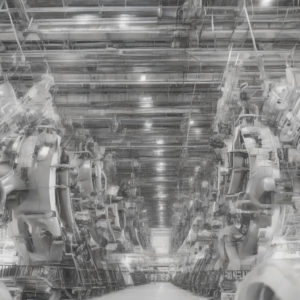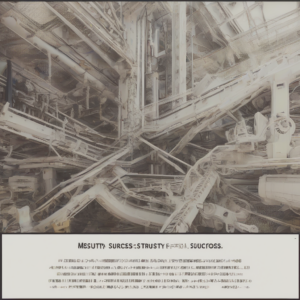Unlocking Human Potential: A Deep Dive into Industrial-Organizational Psychology Master’s Programs
An Industrial-Organizational (I-O) Psychology Master’s program offers a unique blend of psychological principles and business acumen, equipping graduates to tackle complex workplace challenges and optimize human performance. This comprehensive guide explores the intricacies of these programs, encompassing curriculum details, career paths, application processes, and factors to consider when choosing the right program.
Curriculum Overview: A Blend of Theory and Practice
I-O psychology master’s programs typically cover a diverse range of topics, seamlessly integrating theoretical foundations with practical applications. The curriculum is designed to cultivate expertise in several key areas:
- Research Methods: Students develop strong quantitative and qualitative research skills, essential for conducting rigorous studies on workplace behavior and performance.
- Statistical Analysis: Proficiency in statistical software packages (e.g., SPSS, R) is crucial for analyzing data and drawing meaningful conclusions from research.
- Organizational Behavior: This area explores group dynamics, organizational structure, leadership styles, and their impact on employee productivity and well-being.
- Personnel Selection and Assessment: Students learn to develop and implement effective selection methods, including interviews, personality assessments, and cognitive ability tests, ensuring the recruitment of highly qualified candidates.
- Training and Development: The curriculum covers designing and delivering effective training programs to enhance employee skills and knowledge, fostering continuous learning and development within organizations.
- Performance Management: Students gain expertise in establishing performance goals, providing constructive feedback, and developing performance appraisal systems that drive improved productivity.
- Job Analysis and Design: This involves systematically analyzing job requirements, designing efficient work processes, and optimizing job roles for maximum effectiveness.
- Organizational Development: Students learn to diagnose organizational problems, implement change initiatives, and facilitate improvements in organizational culture and effectiveness.
- Human Factors Psychology: This specialized area focuses on optimizing the interaction between humans and technology, improving workplace safety and efficiency.
- Employee Well-being and Motivation: Understanding employee needs, promoting job satisfaction, and fostering a positive work environment are crucial aspects of I-O psychology.
- Legal and Ethical Considerations: A strong emphasis is placed on adhering to ethical guidelines and legal regulations in all aspects of I-O practice.
Career Paths: Diverse Opportunities for I-O Psychologists
Graduates with a Master’s degree in I-O psychology can pursue a wide range of fulfilling and impactful careers. The field offers diverse opportunities across various sectors, including:
- Human Resources (HR) Management: I-O psychologists play a vital role in talent acquisition, performance management, employee relations, and organizational development within HR departments.
- Consulting: Many graduates choose to work as consultants, advising organizations on improving workplace effectiveness, employee engagement, and organizational change.
- Academia: Some pursue careers in academia, teaching and conducting research to advance the field of I-O psychology.
- Government Agencies: Government agencies often employ I-O psychologists to conduct research, develop policies, and improve public sector workforce management.
- Research and Development: I-O psychologists are involved in designing and conducting research to improve various aspects of the workplace, such as safety, productivity, and job satisfaction.
- Employee Assistance Programs (EAPs): I-O psychologists contribute to developing and delivering EAPs, providing support and resources to employees struggling with personal or work-related challenges.
Application Process: Navigating the Admissions Requirements
The application process for I-O psychology master’s programs typically involves several key steps:
- Submitting Transcripts: Official transcripts from all undergraduate and graduate institutions attended are required.
- GRE Scores (May or May Not Be Required): Some programs require GRE scores, while others have transitioned to test-optional policies. It is crucial to check the specific requirements of each program.
- Letters of Recommendation: Strong letters of recommendation from professors or supervisors who can attest to academic abilities and professional potential are essential.
- Statement of Purpose: A well-written statement of purpose outlining academic and career goals, relevant experiences, and reasons for choosing the specific program is crucial.
- Resume/CV: A comprehensive resume or curriculum vitae highlighting academic achievements, research experience, relevant work experience, and extracurricular activities is necessary.
- Interviews (Sometimes Required): Some programs may conduct interviews to assess candidates’ suitability for the program.
Factors to Consider When Choosing a Program
Selecting the right I-O psychology master’s program requires careful consideration of several factors:
- Program Reputation and Accreditation: Choose a program with a strong reputation and accreditation from relevant organizations.
- Faculty Expertise: Review the faculty’s research interests and publications to ensure alignment with your academic and career goals.
- Curriculum Focus: Consider the specific areas of I-O psychology emphasized by the program and whether they match your interests.
- Research Opportunities: Assess the availability of research opportunities, such as involvement in faculty research projects or the possibility of conducting independent research.
- Career Services: Evaluate the program’s career services, including career counseling, internship opportunities, and networking events.
- Location and Campus Culture: Consider the location of the program and the overall campus culture to ensure a suitable learning environment.
- Program Cost and Financial Aid: Compare the cost of tuition and fees with available financial aid options, such as scholarships and loans.
- Program Size and Class Size: Consider whether you prefer a larger or smaller program and the size of the classes.
- Alumni Network: A strong alumni network can provide valuable mentorship and career opportunities.
Specializations Within I-O Psychology
Many I-O psychology master’s programs offer specializations or concentrations that allow students to deepen their expertise in specific areas. These specializations may include:
- Human Factors/Ergonomics: Focusing on the interaction between humans and machines, and designing workspaces for optimal safety and efficiency.
- Organizational Change and Development: Specializing in leading and managing organizational transformations and improvements.
- Talent Management: Concentrating on strategies for attracting, developing, and retaining top talent within organizations.
- Employee Well-being and Health: Focusing on promoting positive mental health and reducing stress in the workplace.
- Leadership and Management: Examining leadership styles, team dynamics, and effective management strategies.
Advanced Studies: Pursuing a Doctoral Degree
For those aspiring to conduct research, teach at the university level, or pursue leadership roles within the field, a doctoral degree (Ph.D. or Psy.D.) in I-O psychology may be a worthwhile next step. A doctoral program provides advanced training in research methodologies, statistical analysis, and theoretical frameworks, equipping graduates for advanced research and academic positions.
The Future of I-O Psychology
The field of I-O psychology is constantly evolving, adapting to the changing dynamics of the modern workplace. Emerging trends and future directions include:
- Big Data Analytics: Utilizing data-driven insights to improve decision-making in HR and organizational development.
- Artificial Intelligence (AI) and Automation: Understanding the impact of AI and automation on the workforce and developing strategies to manage these changes.
- Remote Work and Virtual Teams: Addressing the unique challenges and opportunities presented by remote work and managing virtual teams effectively.
- Diversity, Equity, and Inclusion (DE&I): Promoting DE&I initiatives to create more inclusive and equitable workplaces.
- Employee Well-being and Mental Health: Prioritizing employee well-being and addressing issues such as burnout and stress.




